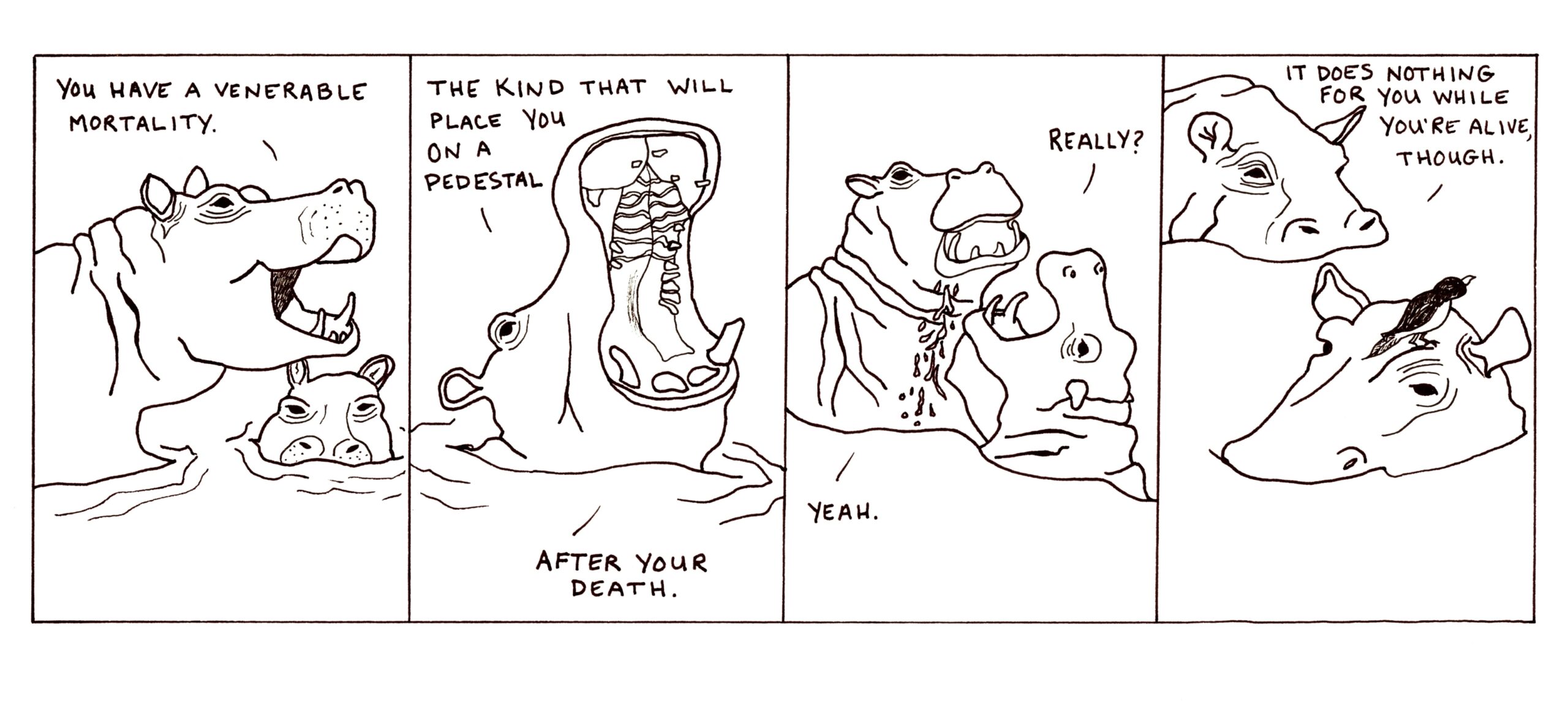Every time I start a new exercise regimen I become a little bit insufferable, because a part of me believes that I have completely optimized my existence and everyone else should take note. Another part of me recognizes how obnoxious this is, but is powerless to stop it.
Enter: yoga. I am actually going to try not to be irritating here (just look at all those self-deprecating synonyms! Insufferable! Obnoxious! Irritating!), but one thing that I like about yoga (as compared to. say, cardio kickboxing surrounded by 18 year old ASU students and their immaculate exercise outfits) is the focus on toughing out the work as a way of embracing difficulty. (“Why do we fall down Master Wayne? So we can learn to pick ourselves back up again.”)
That is a particularly relevant message to me right now, and what I mean to say is: thank you to everyone who has been emailing/calling/sending me drawings of your butt mooning me. Friends are good.
I’m tempted to devote the rest of my time here today to an in-depth analysis of The Dark Knight Rises, but I think I can give my thoughts pretty succinctly (edit: nope), and in a craft-focused manner that does honor to the many annotations that Pete Turchi had me write at ASU’s MFA program. That will also hopefully help me steer away from giving too many spoilers. Why do this at all? Well I don’t like you, that’s what. Shut up.
Here is the issue I have with the movie: the opening third is predicated on an understanding that Gotham is in a period of economic good health and unprecedentedly low criminal activity. At the same time, there is an increasingly wide wealth disparity, leaving a lower class vulnerable to corruption (in order to survive) and an upper class already consumed by corruption (because absolute power, etc. etc.). Sound familiar? Of course it does. Minus the “unprecedentedly low criminal activity” this is an obvious allegory for the reality of the contemporary United States.
The problem, however, is not that the movie tried to draw this allusion, but that it never fleshed it out. If the film had used Gotham City as a “character” (i.e. dramatized the city’s situation by showing us a mean & unfeeling upper class & increasingly desperate lower class & turned this into a part of the film’s atmosphere) the wealth gap would have felt true to the world of the movies , important in the lives of Gotham residents. This, in turn, would have mobilized the revolution that takes place and given a moral engine to Bane’s character. (And Catwoman’s too: her desperation & thievery would have been more clearly motivated by need, and her decision to stick around & help out would have felt more like real moral growth – acting for the greater good instead of mere survival.)
As it was, I think the filmmakers assumed that audiences would fill in the emotional gaps because we would be able to relate to the situation in Gotham. That intellectualization of a concept works fine in an op-ed, but not in a movie: movies (especially Batman, come on) are dramatic and visual in nature. For the corrupt economic situation to transcend mere topical allegory, therefore, it had to be visually dramatized.
Before you argue with me that Bane had a different moral engine driving him as we discover later on, well, that’s true. But the argument still applies to the person behind Bane, who would be feeding him motivation.
Also, I think we can all agree that more fistfights were in order.
Moving on. I’ve been reading some interesting stuff on the internet this week, and I feel it is my duty to share it with you all. So please enjoy:
– The Paris Review Interview with Haruki Murakami (I’m particularly enjoying this as I read 1Q84 – which, by the way, is fantastic – but the interview actually took place just after Kafka on the Shore came out.)
– A wonderful Mary Ruefle essay on the Poetry Foundation website
– The Plastic Garbage Project exhibition at the MUSEUM FÜR GESTALTUNG in ZÜRICH (sorry for the weird capitalization – I had to copy & paste to maintain umlauts). Have you heard of the plastic bag islands in the Pacific Gyre? This extremely detailed exhibit looks at the impact of that plastic deposit, and the history/science of plastic as a part of our world generally. Really interesting and disturbing.
– Finally, on a lighter note: So You Got Your MFA in Poetry
